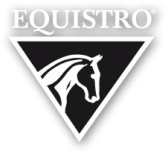
Vitamin B2 (Riboflavin)
Sources
Healthy adult horses are able to synthesize b-complex vitamins in sufficient quantities via the bacteria in the large intestine (colon) if they are given enough forage. Particularly rich in riboflavin are legumes (alfalfa, clover), grass, hay, and grains.
Daily Requirements
2 mg/kg dry matter
Healthy adult horses normally are able to cover their daily needs by microbiological activity of their hind gut bacteria when fed a balanced diet.
Deficiency
Moldy hay, rations low in crude fiber, sudden feed changes or oral application of medications with a bacteriostatic effect can in principle result in a deficiency of B-complex vitamins, as the horse is virtually unable to store them.
A deficiency of vitamin B2 in horses has so far only been initiated under experimental conditions. Conjunctivitis, photophobia, increased lacrimation and damage to the lens of the eye have been observed.
If low synthesis of the intestinal flora is to be feared with rations rich in concentrated feed and low in crude fiber (e.g., in high-performance horses), a supplementation of b-complex vitamins should be considered.
Excess
Due to the fact that healthy adult horses are able to synthesize the required amounts of several b-complex vitamins, an excecss is very unlikely and only may occur with a very low likelyhood after heavy abuse of b-complex vitamin enriched supplements.
When problems may occur?
Horses suffering from intestinal inflammation, malabsorption, diarrhea or overall loss of appetite can have a benefit when being supplemented with b-complex vitamins due to the lack of microbioal activity. Weak foals can be suported with b-complex vitamins to stimulate their appetite and provide them with essential vitamins as well.
Unsupplemented soya-based milk replacers may be deficient in riboflavin.



